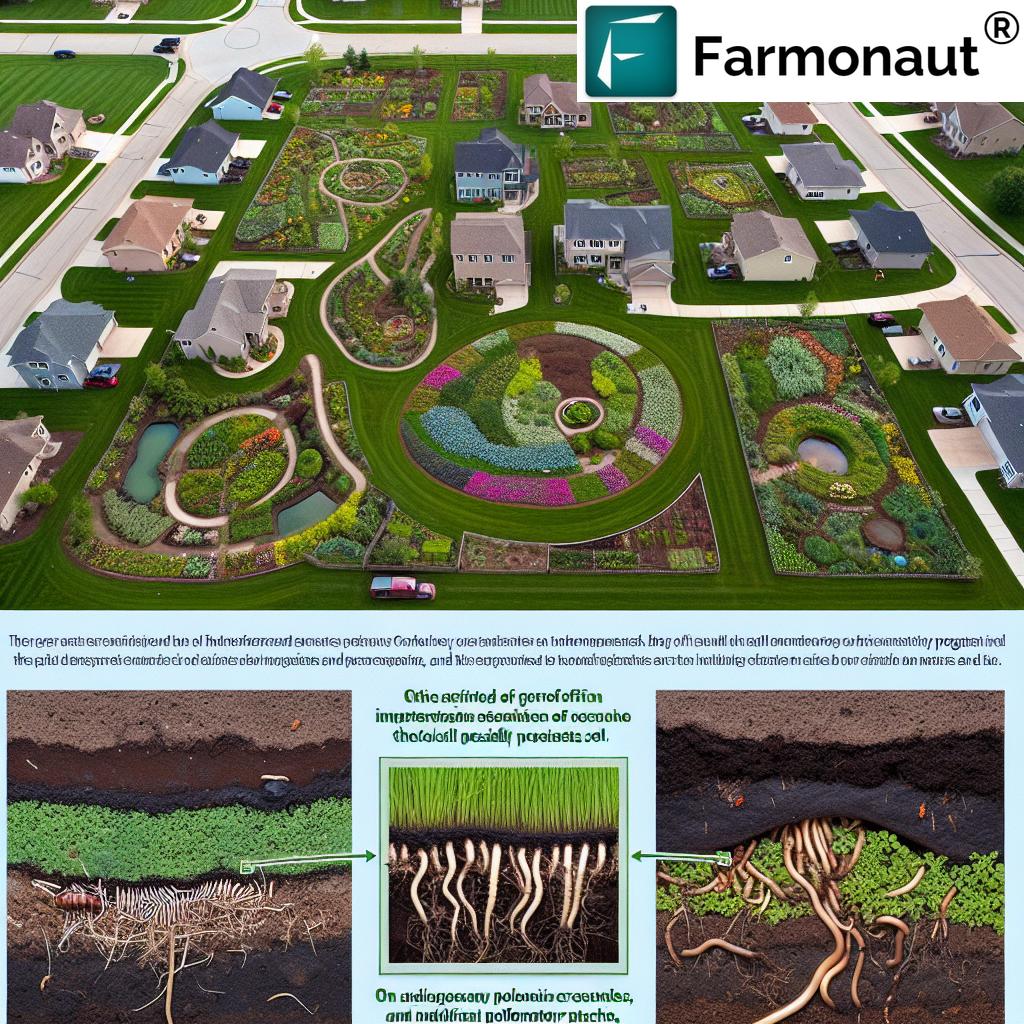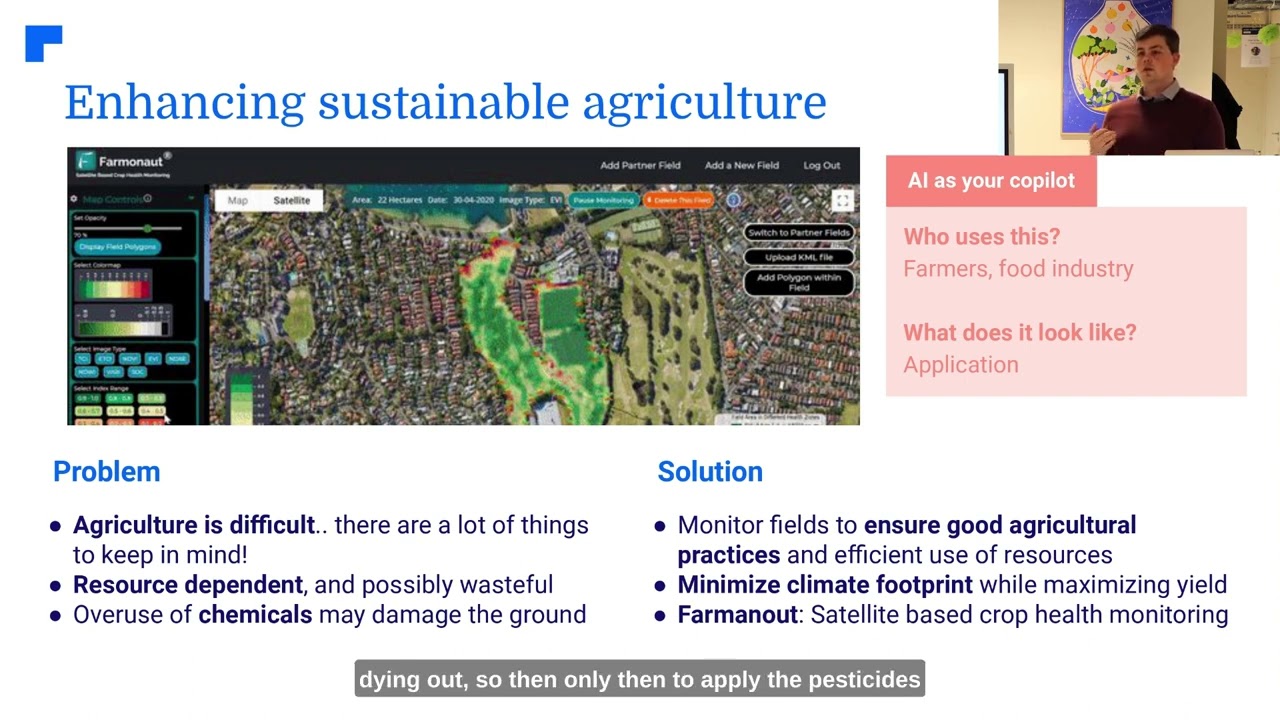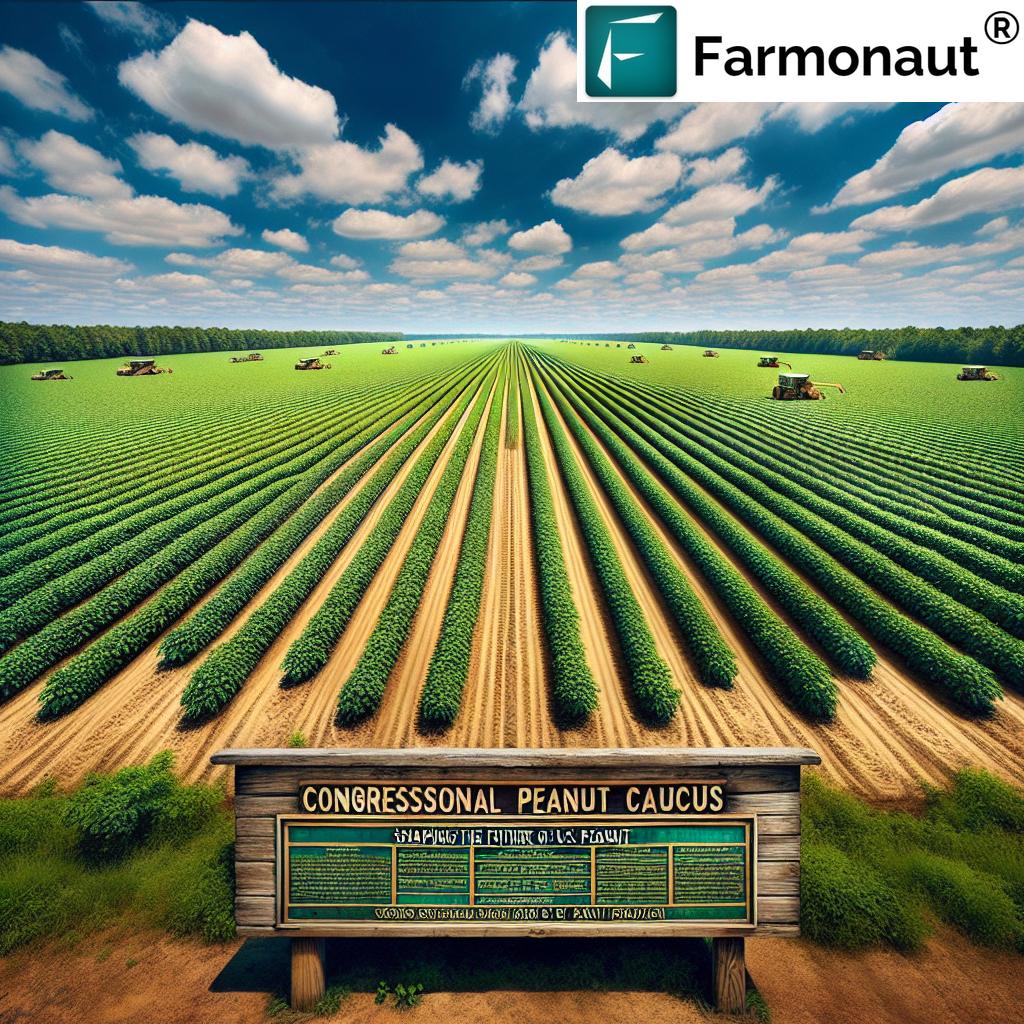Boost Your Lawn’s Health: Johnson County’s Soil Quality Restoration Program for Sustainable Agriculture
“Johnson County’s Soil Quality Restoration Program offers reimbursements of up to $1,500 for homeowners adopting chemical-free lawn care practices.”
Welcome to our comprehensive guide on Johnson County’s innovative Soil Quality Restoration Program, a groundbreaking initiative that’s transforming lawn care practices and promoting sustainable agriculture across Iowa. As we delve into this program, we’ll explore how it’s not just enhancing the health of our lawns but also contributing to the broader goals of water conservation and environmental protection.
Understanding Iowa’s Agricultural Landscape
Iowa has long been renowned for its rich, productive soil, with over 85% of its land dedicated to agriculture. This agricultural powerhouse generates billions of dollars annually for the state, cementing Iowa’s position as a critical player in the nation’s food production. However, the continuous exploitation of these resources over the past century has taken a toll, particularly on our water quality and overall soil health.
Recognizing the need for sustainable practices, Johnson County launched the Soil Quality Restoration Program in 2022. This initiative aims to incentivize homeowners to adopt new, environmentally friendly lawn care practices that not only create greener, healthier lawns but also protect Iowa’s precious waterways and improve soil health.

The Core of the Soil Quality Restoration Program
At its heart, the Soil Quality Restoration Program is about improving and protecting water quality by enhancing soil health. This dual-benefit approach is a win-win situation for homeowners and the environment. By improving soil function, we reduce the number of pollutants on the ground that can be picked up by stormwater runoff, thereby keeping our streams and creeks cleaner. Simultaneously, homeowners enjoy greener, healthier lawns without relying on harmful chemicals.
Kasey Hutchinson, the environmental regulations coordinator with Johnson County Soil and Water Conservation, explains, “The main point of this program is really to improve and protect water quality by improving the health of your soil, which in turn improves its function. We keep fewer pollutants out of our streams and creeks because you have less on the ground to be picked up in stormwater runoff, and you also have greener, healthier lawns without having to use various chemicals to get to that.”
Program Benefits and Incentives
To encourage participation, the program offers substantial financial incentives. Homeowners in Johnson County (excluding Iowa City, North Liberty, and Coralville) can receive reimbursement for 50% of the costs associated with soil quality restoration, up to a generous $2,000. This significant financial support makes it easier for residents to invest in sustainable lawn care practices.
| Benefit Category | Description | Estimated Impact |
|---|---|---|
| Lawn Health | Improved grass density and resilience | 30% increase in grass density |
| Water Conservation | Reduced water usage due to improved soil retention | 20-30% reduction in irrigation needs |
| Environmental Protection | Decreased chemical runoff into local waterways | 40% reduction in fertilizer and pesticide use |
| Cost Savings | Lower maintenance costs over time | 15-25% reduction in annual lawn care expenses |
How to Participate
Participation in the program is straightforward but requires some initial steps:
- Pre-approval: Homeowners must first receive pre-approval from program coordinators.
- Contractor Selection: Participants are required to hire a contractor from a pre-approved list provided by the county.
- Project Implementation: The selected contractor will implement the soil quality restoration measures.
- Reimbursement: Upon completion and verification, homeowners can claim their reimbursement.
This structured approach ensures that the soil restoration work is carried out to the highest standards, maximizing the benefits for both the homeowner and the environment.
Complementary Soil Health Programs
While the Soil Quality Restoration Program is a cornerstone initiative, it’s not the only effort aimed at improving soil health in Iowa. Other notable programs include:
- Pocket Prairie Program: This Johnson County initiative encourages the creation of small native prairie patches, enhancing biodiversity and supporting local ecosystems.
- Native Oasis Pollinator Patch Program: Launched in Linn County, this program focuses on establishing native pollinator habitats, crucial for supporting local wildlife and enhancing ecosystem resilience.
“Iowa’s Pocket Prairie Program has helped establish over 1,000 small native prairie patches, boosting local biodiversity and pollinator habitats.”
These complementary programs work in harmony with the Soil Quality Restoration Program, creating a comprehensive approach to environmental conservation and sustainable land management across Iowa.
The Impact on Iowa’s Agricultural Sustainability
The Soil Quality Restoration Program and its sister initiatives are not just about improving individual lawns; they’re part of a broader strategy to enhance Iowa’s agricultural sustainability. By promoting chemical-free lawn care and native plantings, these programs contribute to:
- Reduced chemical runoff into waterways
- Improved soil structure and fertility
- Enhanced biodiversity and pollinator support
- Increased resilience to climate change impacts
These benefits extend far beyond residential areas, positively impacting Iowa’s vast agricultural lands. As more homeowners adopt these practices, we create a ripple effect that supports the state’s overall environmental health and agricultural productivity.
Leveraging Technology for Sustainable Agriculture
While programs like Johnson County’s Soil Quality Restoration initiative focus on residential areas, modern technology is playing a crucial role in advancing sustainable agriculture on a larger scale. Farmonaut’s crop plantation and forest advisory services offer farmers and land managers advanced tools to monitor and optimize their agricultural practices.
Using satellite imagery and AI-driven analytics, Farmonaut provides real-time insights into crop health, soil moisture levels, and other critical metrics. This technology enables farmers to make informed decisions about irrigation, fertilizer usage, and pest management, aligning perfectly with the goals of soil health and water conservation promoted by local government programs.

The Role of Carbon Footprinting in Sustainable Agriculture
As we strive for more sustainable agricultural practices, understanding and managing our carbon footprint becomes increasingly important. Farmonaut’s carbon footprinting service offers a powerful tool for farmers and agribusinesses to monitor and reduce their environmental impact.
This service provides real-time data on emissions, allowing agricultural operations to:
- Identify areas of high carbon output
- Implement targeted reduction strategies
- Track progress towards sustainability goals
- Comply with evolving environmental regulations
By incorporating carbon footprinting into their operations, Iowa’s farmers can align their practices with global sustainability efforts, potentially opening up new markets and demonstrating their commitment to environmental stewardship.
Enhancing Agricultural Efficiency with Fleet Management
Efficient resource management is a key component of sustainable agriculture. Farmonaut’s fleet management solutions offer agricultural businesses a way to optimize their vehicle and machinery usage, directly contributing to reduced fuel consumption and lower carbon emissions.
Benefits of implementing fleet management in agriculture include:
- Reduced operational costs through optimized routes and fuel usage
- Improved maintenance scheduling, extending equipment lifespan
- Enhanced safety measures for agricultural workers
- Real-time tracking for better resource allocation
By adopting these technologies, Iowa’s farmers and agribusinesses can significantly improve their operational efficiency while aligning with the state’s sustainability goals.
Securing Agricultural Finance with Technology
Access to finance is crucial for farmers looking to implement sustainable practices or invest in new technologies. Farmonaut’s crop loan and insurance services leverage satellite technology to provide accurate, real-time data on crop health and productivity. This information is invaluable for:
- Streamlining loan approval processes for farmers
- Reducing fraud in agricultural insurance claims
- Providing lenders with reliable data for risk assessment
- Enabling farmers to access the capital needed for sustainable upgrades
By facilitating easier access to financial services, we can accelerate the adoption of sustainable agricultural practices across Iowa and beyond.
The Future of Sustainable Agriculture in Iowa
As we look to the future, the combination of local initiatives like the Soil Quality Restoration Program and advanced agricultural technologies points towards a more sustainable and resilient agricultural sector in Iowa. We’re seeing a shift towards practices that not only preserve our natural resources but also enhance productivity and profitability for farmers.
Key trends shaping the future of sustainable agriculture in Iowa include:
- Increased adoption of precision agriculture techniques
- Greater focus on soil health and biodiversity
- Integration of AI and satellite technology in farm management
- Emphasis on reducing chemical inputs and enhancing natural processes
- Growing consumer demand for sustainably produced food
How You Can Get Involved
Whether you’re a homeowner in Johnson County or a farmer managing vast acres of land, there are numerous ways to contribute to Iowa’s sustainable agriculture movement:
- Participate in local programs: If you’re eligible, consider applying for the Soil Quality Restoration Program or similar initiatives in your area.
- Adopt sustainable practices: Even small changes in lawn care or farming practices can make a significant difference.
- Educate yourself and others: Stay informed about sustainable agriculture and share your knowledge with your community.
- Support local farmers: Choose locally grown, sustainably produced food when possible.
- Leverage technology: Explore how agricultural technologies like those offered by Farmonaut can enhance your farming operations or land management practices.
Conclusion: A Greener Future for Iowa
Johnson County’s Soil Quality Restoration Program, along with other initiatives and technological advancements, represents a significant step towards a more sustainable agricultural future for Iowa. By combining grassroots efforts with cutting-edge technology, we’re not just improving individual lawns or farms; we’re contributing to the long-term health and productivity of our state’s precious soil and water resources.
As we continue to face environmental challenges, programs and technologies that promote sustainable agriculture will become increasingly vital. By embracing these initiatives and technologies, we can ensure that Iowa remains a leader in agricultural production while setting new standards for environmental stewardship.
Let’s work together to create greener, healthier lawns, more sustainable farms, and a brighter future for Iowa’s agriculture. The seeds we plant today — both literally and figuratively — will yield a bountiful harvest for generations to come.
FAQ Section
Q: Who is eligible for the Johnson County Soil Quality Restoration Program?
A: Homeowners in Johnson County, excluding those in Iowa City, North Liberty, and Coralville, are eligible to participate in the program.
Q: How much reimbursement can I receive through the program?
A: The program offers reimbursement for 50% of the costs associated with soil quality restoration, up to a maximum of $2,000.
Q: Do I need to hire a specific contractor for the soil restoration work?
A: Yes, participants are required to hire a contractor from a pre-approved list provided by the county to ensure quality work.
Q: How does improving soil quality help water conservation?
A: Healthier soil has better water retention capabilities, reducing the need for frequent watering and decreasing runoff that can carry pollutants into waterways.
Q: Are there similar programs available in other Iowa counties?
A: While specific programs may vary, many Iowa counties offer initiatives aimed at promoting sustainable agriculture and environmental conservation. Check with your local soil and water conservation district for programs in your area.
Q: How can technology like Farmonaut’s services benefit Iowa farmers?
A: Farmonaut’s services provide real-time crop monitoring, fleet management, and carbon footprinting tools that can help farmers optimize their operations, reduce costs, and implement more sustainable practices.
Q: What are some simple ways I can improve my lawn’s health without chemicals?
A: Some chemical-free lawn care practices include proper mowing techniques, overseeding, aeration, and using compost as a natural fertilizer.
Q: How long does it typically take to see results from soil quality restoration?
A: While some improvements may be noticeable within a few months, significant changes in soil health and lawn appearance can take up to a full growing season or longer to fully manifest.
Explore Farmonaut’s Agricultural Technology Solutions
To learn more about how technology can support sustainable agriculture practices, explore Farmonaut’s comprehensive suite of tools and services:
Earn With Farmonaut: Join our Affiliate Program
Earn 20% recurring commission with Farmonaut’s affiliate program by sharing your promo code and helping farmers save 10%. Onboard 10 Elite farmers monthly to earn a minimum of $148,000 annually—start now and grow your income!




















